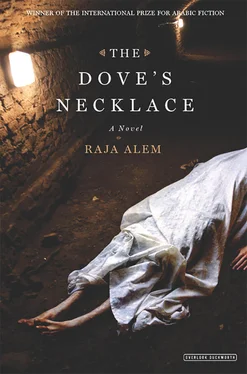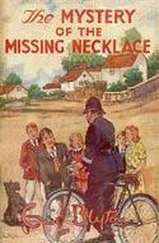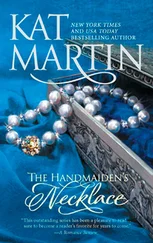“Hmm Hmm Hmm …” Inside houses women murmured, and outside mothers blew on the corpse to keep disgrace from spreading to the other girls in the Lane of Many Heads.
An officer, two police cars, and an ambulance rushed through my narrow entrance into the confused melee around the body. Everyone fell silent when it came time to record the victim’s name on the official forms.
“Unknown.”
For the first time, the woman lay unveiled in the alley for all eyes to see. They covered her in white and lifted her onto a stretcher; her slender right leg escaped and dangled over the side, trailing in my dust all the way to the ambulance, where the nurse gathered her up and thrust her inside the van alongside festoons of resuscitating equipment.
The dead woman left no mark except for the line that her neatly trimmed, rose-scented toenails traced across my back and the bloodstain between the houses of Sheikh Muzahim and Aisha the schoolteacher.
At the Bottom of the Vat
H ALIMA LOOKED OUT FROM HER ROOF, HER GAZE FLITTING OVER THE SURROUNDING walls of my houses, running over my crumbling, impoverished rooftops where the remains of old furniture languished. Her roof was bare except for some potted herbs. She marveled at those who lived in my alley, those who never turned their noses up at a rotten chair or a soggy couch but were content to share their spot with the rain, the heat, the passage of time till they themselves were as damp as the old sofas, as dreary as the threadbare carpets. She played memories of Azza over in her head, allowing herself to feel the pain of some of those scenes. Around her, every family in the neighborhood counted their daughters and washed their hands of the scandal of the body.
She had no idea how long she’d been sitting there in silence when she was roused by the sound of a crow that had gotten stuck somehow in a forgotten water vat at the edge of the roof and was struggling to escape through the half-open lid. It burst out in a streak of black, followed by a sparrow.
As soon as Halima lifted the decaying wooden lid, she could make out the papers that filled the vat. They were wrapped in trash bags. Her hand trembled, and the yellow of the papers nipped at her heart. “These aren’t drafts of my son Yusuf’s articles.” His rational, carefully indexed articles were piled up in the corner of their room. Halima scooped the papers out excitedly and pressed them to her cheeks and nose. The sweat of Yusuf’s hands, his unspoken passion, his madness wound its way through the words, from the first clipping at the top of the pile to the thick paper of a cement sack that bore a drawing of a pregnant woman. The charcoal line-drawing stopped her in her tracks: it showed a woman’s body from her waist to her knees, emphasizing her thighs and her round, pear-shaped stomach.
Halima was illiterate so she couldn’t read any of the papers, all of which were dated, but still she memorized them: pages that spilled over with words fading away in the distance like a caravan of camels loaded with firewood, and others on which the camels had left marks where they’d kneeled. The words agitated her, bounding over the page like cats in heat, sniffing each other’s tails, scattering ink and meows left, right, and center, words, which were no more than a pit in the center of the page, a boulder poised to tumble off the bottom right-hand corner, a fishing net of tangles and runs.
Halima realized that the papers she was clutching were her son’s insides. Her son, whom the body had driven away.
She didn’t know what to think. There were dozens of pages fashioned out of cement sacks covered in tire tracks, blackened with charcoal drawings of creatures, a cross between humans and motorbikes, accompanied by signs — some bearing neon lights, others rusted and old — reminiscent of the shop fronts that lined the Lane of Many Heads. Halima knew they were Yusuf’s letters to Azza; once hidden in the broken radio, they must have been retrieved by Yusuf before he disappeared.
Halima held the corner of her scarf over her nose as a cloud of dust rose from the charcoal; it was still moist. Her heart was beating hard. She put the lid firmly back on the vat and turned away.
“If only I could read …”
Angel Girls
I SHUT MY EYES AS SOON AS THE STORM BROKE OVER MY ALLEYWAYS AND HOUSES. Everyone had to take his or her turn being questioned at the police precinct, and the raids, searches, and seizures went on endlessly. They confiscated all the most popular videotapes from the café. There were more crows circling over Mushabbab’s orchard than usual; he had taken off after the bank foreclosed on both house and orchard following a disastrous stock market venture that took place just a few days before the body appeared. Yusuf had disappeared along with Mushabbab, so no one was surprised when his mother Halima, the tea lady, was called in for questioning. A masterful mind-reader, I closely observed the features of those going into the precinct, and the ashen looks of those coming out, their index fingers stained with ink from marking witness statements. Halima, on the other hand, looked like she was on the way to one of her tea-pouring ceremonies. She’d even touched up the half-moon of henna on her palm, ready for the fingerprinting. When she stepped into Detective Nasser’s office, they were both surprised; she’d been expecting to see Ali, the officer who’d dealt with the body that morning. This Nasser lacked the air of indifference and flaccidity that Ali had affected as he strolled around the body, laughing flirtatiously at the feminine voice emanating from the cellphone that never left his ear, waving orders to his assistant before finally gesturing to him to move the body and clear the scene.
“Aren’t you going to take fingerprints from the body first?!” Khalil the taxi driver’s voice boomed absurdly, as if straight out of a movie script. Everyone turned to look. The official smile on Ali’s face congealed suddenly in the heat. Without putting his phone down, he answered the challenge: “Is anyone here related to the deceased?” he demanded, staring defiantly into the eyes of the crowd around him. “If so, perhaps they’d care to come with us for a preliminary interrogation, so we can file charges and open a case. Then we can apply to the relevant authorities to take fingerprints. It’ll take some time, and, as you know, the victim’s relative will have to meet with us frequently over the course of our investigations. They’ll need to make sure they’re free for, let’s say, a month, maybe a year — who knows? Investigations take time. This isn’t a TV show, folks.” The crowd shrank back. Ali gestured to his assistant to clean up.
Halima looked at Nasser; he didn’t have that naive, vacant look of authority that Ali had. Nasser looked like his pride had dried him out. The Sony air conditioner stiffened him; the ceiling fan whipped at his face and flaked the paint off the corners of the room; spiders had paved webs over the electrical wires and were working their way over the detective’s face as he examined the same grim, murderous mugs filing past, asking the same questions, dealing the same blows till his rough skin started to look like an extension of the brown camel-hair carpet on the floor. Detective Nasser al-Qahtani had interrogated thousands of people during his quarter century as head of the criminal investigation bureau, and they all left him feeling the same. Even though Nasser was not himself the human embodiment of Israfil, the archangel who will sound the trumpet on Judgment Day, he did derive his strength from him. The archangel worked as Nasser’s assistant, hiding in the beat-up Sony air conditioner and blowing at the faces of the accused.
“This Nasser guy’s possessed,” Halima thought to herself, pity showing on her face. Nasser turned his swivel chair a half-turn to the right, stretching his shoulder across the width of the gray office, blocking her pleading look with the insignia on his uniform. She reminded him of his aunt Etra, queen of Wadi Mehrim in the Surat Mountains. Aunt Etra had married half a dozen men, each of them years younger than she was. She was famous for her snake-like ability to paralyze a man with a single look and make him crazy with desire. They said that she could peer right through a man down to his semen, that her eyes could pierce through to his spine, that she knew how to touch all the most vital points on a man’s body. They said that before she passed away, she’d leave the secrets of her wisdom to the wildest girls in Wadi Mehrim, but only if they could read and write, so that they could record her teachings about these special spots and one day publish them. The old men of Wadi Mehrim, though practically on their deathbeds, still fought over her, desperate to have her trace a map of vital points across their bodies, to breathe life back into them.
Читать дальше












